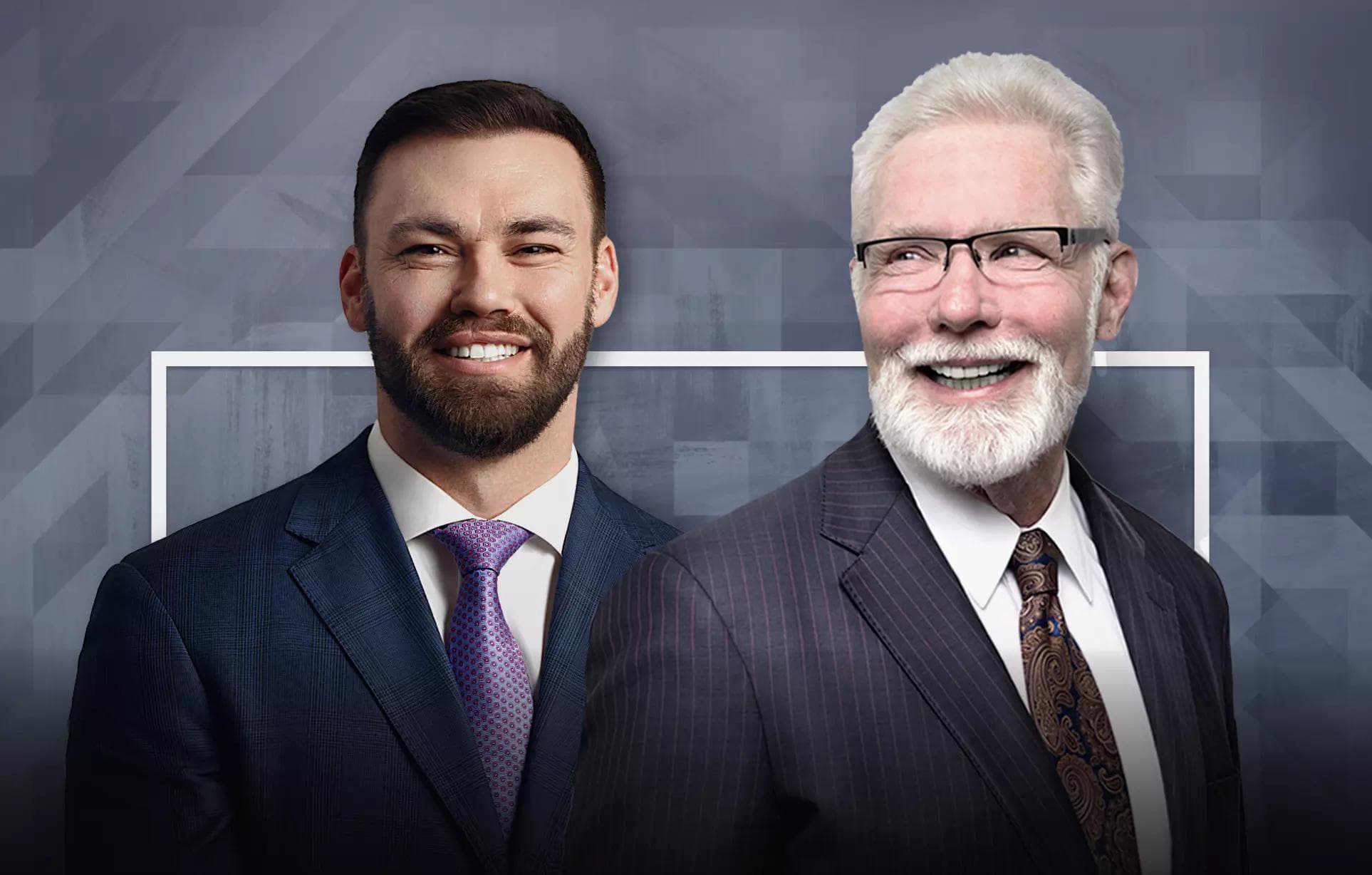
Is it Worth Hiring a Personal Injury Attorney?
Free ConsultationWhen you’ve been injured, the path to recovery can be daunting. Legal complexities add another layer of stress to an already difficult situation. If you’re in California and find yourself in such a predicament, hiring a personal injury attorney could be your best decision yet.
Understanding Personal Injury Cases
Personal injury cases come in many forms, all hinging on the premise that a person has suffered harm due to another’s negligence or intentional misconduct. If you’ve been injured physically, emotionally, or financially because of someone else’s actions, you may have a personal injury case.
In California, personal injury cases take all kinds of forms. They can range from auto accidents (which are notoriously common given our state’s high traffic volumes), to slip and fall incidents often resulting from poorly maintained properties. Workplace injuries are also prevalent, especially in industries involving manual labor. Medical malpractice, product liability, and dog bites are other common types of personal injury cases in California.
The Role & Benefits of a Personal Injury Attorney
When you’re facing the aftermath of a personal injury, it can feel like you’ve been thrown into a labyrinth of legal complexities. This is where a personal injury attorney comes in. But what exactly does a personal injury attorney do?
A personal injury attorney is a legal professional who provides representation to those who have been injured because of the negligence or wrongdoing of another party. They are experts in tort law, which includes civil wrongs and economic or non-economic damages to a person’s property, reputation, or rights.
Navigating the complex legal system is no simple task, especially when you’re dealing with the physical and emotional toll of an injury. A personal injury attorney steps in to guide you through this maze. They handle everything from filing the legal documents to negotiating with insurance companies on your behalf, allowing you to focus on your recovery.
Here are some key benefits of hiring a personal injury attorney:
- Knowledge of Personal Injury Law: This is their field of practice. They know the ins and outs of the legal procedures, documentation, and other requirements of your case. This experience can help you feel more comfortable with the process and know that you have a trusted advocate fighting for you.
- Negotiation Skills: Insurance companies often attempt to offer the lowest possible amount for a settlement. Your attorney will skillfully negotiate on your behalf, working diligently to try to get you a fair deal.
- Court Representation: Your attorney will represent you in court, advocating for your rights and fighting for your best interests, even all the way through trial if necessary.
- Peace of Mind: Having a professional handle your legal worries can give you peace of mind, allowing you to focus on your recovery.
- No Upfront Fees: Most personal injury attorneys work on a contingency basis, meaning they only get paid if they win your case. This ensures they will work hard fighting for you.
Each of these points underscores the immense value a personal injury attorney brings to your case. They guide you through the complex legal system, negotiate on your behalf, represent you in court, provide peace of mind, and work on a no-win, no-fee basis.
Common Misconceptions about Hiring an Attorney
There are several misconceptions concerning the hiring of personal injury lawyers. These myths can deter injured individuals from seeking the legal help they need and deserve. Let’s address some of these common misconceptions and set the record straight.
Misconception 1: Hiring an attorney is too expensive.
Fact: Most personal injury attorneys work on a contingency fee basis. This means they only get paid if they win something for you—either through settlement or trial. You won’t have to pay anything upfront, and their fees will come out of your settlement. Therefore, hiring an attorney doesn’t have to be a financial burden.
Misconception 2: I can handle my case on my own.
Fact: Personal injury law is complex and navigating it without professional help can be challenging. An experienced attorney knows how to build a strong case, negotiate with insurance companies, and represent you in court if necessary.
Misconception 3: Lawyers drag out cases to make more money.
Fact: It’s in the best interest of attorneys to resolve cases as efficiently as possible. Prolonging a case unnecessarily can damage an attorney’s reputation and client relationships. They strive to get you the compensation you deserve in a timely manner.
Misconception 4: All personal injury cases go to trial.
Fact: The vast majority of personal injury cases settle out of court. Your attorney will work to negotiate a fair settlement with the opposing party. Only if a satisfactory agreement can’t be reached, will the case go to trial.
These misconceptions can prevent you from getting the legal help you need. It’s important to base your decisions on facts, not myths. A personal injury attorney is a valuable ally in your fight for justice and compensation. The PARRIS Law Firm is here to provide the support and guidance you need during this challenging time.
Costs Associated with Hiring a Personal Injury Attorney
One of the primary concerns when considering hiring a personal injury attorney is the cost. Many people fear that legal representation will be too expensive for them to afford. However, it’s important to understand the costs associated with hiring a personal injury attorney and why these costs are justified.
Contingency Fees: Most personal injury attorneys work on a contingency fee basis. This means they only charge a fee if they win or settle your case. The fee is typically a percentage of the settlement or award up to 40%. This arrangement ensures that you don’t have to pay anything upfront in exchange for the risks that the attorney takes putting their time and costs into your case. It also means you and the attorney share the same goal: to maximize your recovery.
Court Costs and Other Expenses: Besides the contingency fee, there can be other costs related to your case. These may include filing fees, costs for obtaining medical records, expert witness fees, and other court-related expenses. It’s important to note that these costs are often advanced by the attorney and later deducted from the final settlement or award.
Now, let’s address why these fees and costs are justified.
Experience: Personal injury attorneys bring their extensive knowledge and experience to your case. They understand the intricacies of the law, how to negotiate with insurance companies, and how to present your case in the best possible light.
Time and Effort: Building a strong personal injury case takes time and effort. Your attorney will spend countless hours researching, gathering evidence, consulting with experts, drafting documents, and negotiating on your behalf.
Risk Mitigation: By working on a contingency basis, your attorney assumes a risk. If they don’t win your case, they don’t get paid. This arrangement aligns your attorney’s interests with yours, ensuring they are incentivized to fight for the best possible outcome.
How to Choose the Right Personal Injury Attorney
Choosing the right personal injury attorney is a crucial step in your journey towards justice and compensation. But how do you know which attorney is the right fit for you? Here’s a guide on what to look for and some key questions to ask when interviewing potential attorneys.
Experience in Personal Injury: Look for an attorney who practices in personal injury law and has a proven track record of successful cases. While a history of success is not a guarantee they’ll win your case, a proven track record shows their dedication to their clients and the case.
Reputation: Consider their reputation in the legal community. Check online reviews, ask for references, and find out about their standing among peers and clients.
Communication: Your attorney and their team should be someone with whom you feel comfortable communicating. They should be able to explain complex legal terms in a manner that you understand and keep you informed about the progress of your case.
Fees: Understand their fee structure. Ask if they work on a contingency basis (where they only get paid if they win your case) or if there are any other costs you should be aware of.
When interviewing potential attorneys, here are some important questions to ask:
- What is your experience with personal injury cases similar to mine?
- How will you communicate with me throughout the case?
- Do you work on a contingency fee basis, and what does that mean for me?
- Are there any other costs I should anticipate?
- How long do you expect this case to take?
- If necessary, are you prepared to take my case to trial?
PARRIS Stands Ready to Help You
Hiring a personal injury attorney in California is not only worthwhile but often crucial for securing the justice and compensation you deserve. Choosing the right personal injury attorney can make all the difference. Look for experience, reputation, communication skills, and a clear fee structure. Ask questions and ensure they’re the right fit for you.
Now, it’s your turn to take action. If you or a loved one has been injured and you’re considering legal representation, don’t hesitate. Contact PARRIS Law Firm today. We’re here to stand by your side, fight for your rights, and help you navigate this challenging time. Your journey towards justice begins with a single step—make that step today.






